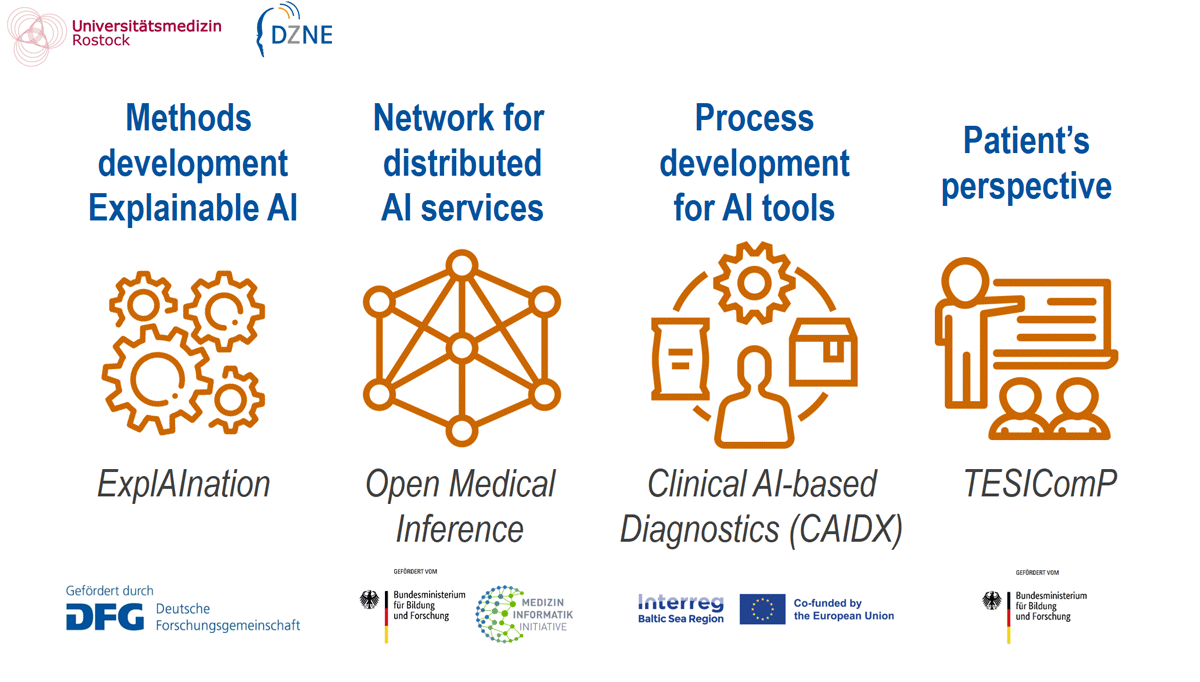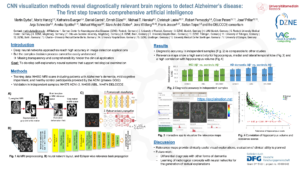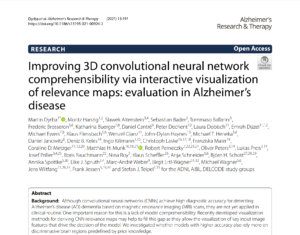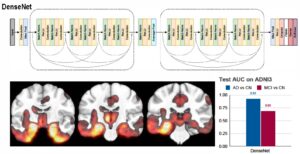We are happy to announce that we will have three new externally funded projects starting in 2023!
As the number of elderly people is rapidly increasing, we are faced with the challenge that the incidence of age-related diseases is also rising and diagnostic services are demanded more frequently. At the same time, however, the actual number of medical centers and available experts remains almost constant such that tools for diagnostic assistance are urgently needed in order to improve the effectiveness of healthcare. One example is the time-intensive examination of brain MRI scans by radiologists for the diagnosis of neurodegenerative diseases. We developed a deep learning application for the detection of atrophy patterns of dementia, highlighting diagnostically relevant brain areas for further evaluation by the radiologists. In three externally funded projects, we will investigate aspects and strategies of how machine learning prototypes systems can be translated into functional healthcare applications.
In the project “TESIComp” funded by the Federal Ministry of Education and Research (BMBF), we will investigate ethical and social aspects of the emerging field of computational psychiatry. Patients, caregivers, and medical doctors will be interviewed and the interviews qualitatively analyzed with regards to changes and challenges in the doctor’s role and responsibilities.
Within the German Medical Informatics Initiative, we will contribute the dementia diagnostic assistance prototype to the project “Open Medical Inference”, which plans to develop a registry of distributed machine learning evaluation services. This framework will allow participating university medical centers to use specific services remotely, without the need to operate all the tools locally. We participate in the international “Clinical AI-based Diagnostics” (CAIDX) consortium, which receives funding from the European Interreg Baltic Sea Region program. Here, we will explore the overarching process of integrating machine learning prototypes and commercial tools into the hospital, with specific focus on the involved stakeholders and departments, regulatory aspects, implementation strategies, and staff training. Finally, this information will be used to develop best practice guidelines.




